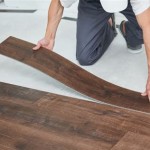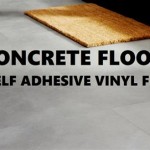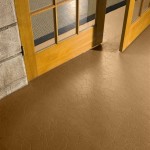Unlock the Benefits of Installing Under Vinyl Flooring for a Superior Home
Vinyl flooring has emerged as a popular choice for homeowners seeking an aesthetically pleasing, durable, and affordable flooring solution. However, the benefits of installing under vinyl flooring often go unnoticed. This hidden layer plays a crucial role in enhancing the performance, longevity, and comfort of your vinyl flooring.
Enhanced Comfort and Sound Reduction
Installing an underlayment beneath your vinyl flooring creates a cushion-like effect that provides added comfort underfoot. This is particularly beneficial in high-traffic areas where prolonged standing can cause fatigue. The underlayment also acts as a sound barrier, absorbing noise from footsteps and impact, creating a quieter and more tranquil living environment.
Improved Thermal Insulation
Under vinyl flooring can help improve the thermal insulation of your home, especially in areas with extreme temperatures. The air pockets within the underlayment trap heat, reducing heat loss and making your home more energy-efficient. This can result in lower heating bills during colder months and a more comfortable living space.
Increased Durability and Longevity
Installing under vinyl flooring can extend its lifespan by protecting it from wear and tear. The underlayment creates a buffer between the hard subfloor and the vinyl flooring, absorbing shock and preventing indentations or damage. This increased durability leads to years of worry-free enjoyment of your vinyl flooring.
Moisture Resistance
Certain types of underlayment are designed to be moisture-resistant, providing an additional layer of protection against spills and moisture. This is particularly important in areas prone to humidity or water damage, such as kitchens, bathrooms, and basements. The moisture-resistant underlayment creates a barrier that prevents moisture from reaching the subfloor and causing warping or damage.
Improved Floor Leveling
Under vinyl flooring can be used to level out uneven subfloors, creating a smooth and stable base for your vinyl flooring. This is especially beneficial in older homes or areas with imperfect subfloors. The underlayment helps to fill in gaps and level out any imperfections, ensuring a professional-looking finish.
Types of Underlayment for Vinyl Flooring
There are different types of underlayment available for vinyl flooring, each offering unique benefits. Common options include:
- Felt underlayment: Provides good sound absorption and comfort underfoot.
- Foam underlayment: Offers excellent cushioning and improved thermal insulation.
- Rubber underlayment: Provides enhanced durability and moisture resistance.
- Cork underlayment: A natural and eco-friendly option that offers excellent sound and thermal insulation.
Conclusion
Installing under vinyl flooring is a worthwhile investment that provides significant benefits. From enhanced comfort and durability to improved thermal insulation and moisture resistance, an underlayment helps optimize the performance and longevity of your vinyl flooring. Whether you're building a new home or renovating an existing one, consider adding an underlayment to your vinyl flooring plan. It's a small investment that will yield big returns in terms of comfort, durability, and overall enjoyment of your home.

Pros Cons Of Vinyl Flooring Eric Wright Carpets

What Are The Advantages Of Loose Lay Vinyl Plank Impression Floors

Discover The Benefits Of Vinyl Flooring Installation Why It S Perfect Choice For Your Home

Vinyl Flooring Benefits Disadvantages Installation

Do You Need An Underlayment For Vinyl Plank Flooring

3 Benefits To Vinyl Flooring Renu My Condo

Vinyl Flooring Pros And Cons Forbes Home

Underlayment For Vinyl Flooring Best Options Home Pros

Benefits Of Vinyl Plank Flooring For Multi Family Properties Raiven

The Primary Benefits Of Vinyl Flooring
See Also







